当前城市:淄博[切换]
- 手机雅思无忧

扫码登录
雅思考试主要是通过对考生听、说、读、写四个方面英语能力的考核,综合测评考生的英语沟通运用能力,实现“沟通为本”的考试理念。对于雅思考生来说,也有很多考试难点和政策盲区需要帮助解答。今天雅思无忧网小编准备了雅思口语试题及答案解析 求:剑八 Test1 雅思口语Part2 a survey 解析题目: D...,希望通过文章来解决雅思考生这方面的疑难问题,敬请关注。
雅思考试以沟通为本,在口语考试中这个特点更加突出。一方面,沟通是双向的信息交流过程;另一方面,作为考试必须遵循一定的准则。所以在口语考启凯试中,如果听不懂考官的的问题、稿辩或者不确定该怎么回答,了解以下这些信息会帮到你。
雅思口语考试不理解考官问题时该如何化解呢
在整场考试中,考官都可以对具体单词给出简单解释。如果不理解某个具体单词的意思,考生可以提问,尽量使用礼貌的表达,例如:
“Sorry, I don’t understand this word’
‘Sorry, what does this word mean, please?’
那么,在口语考试的各个部分,怎么与考官互动呢?
在第一部分中,考官可以重复问题
如果没听懂问题,可以礼貌的要求考官重复问题,例如以下表达:
‘Sorry, can you repeat the question please?’
‘Could you say that again please?’
在第二部分中,考官可以简单解释问题
第二部分的问题是写在任务卡上的,应该很容易理解,如果遇到不认识的单词,首先应当应该仔细阅读任务卡,自己猜出单词的含义。如果还是不明白,考官可以应考生要求简单解释一下单词或者问题的含义。不过,问题本身不可以更改。
在第三部分中,考官可以应考生要求重复问题
考官可以应考生要求重复问题、澄清问题、改述问题,或者提供进一步信息帮助考生理解问题。可以试以下表达向考官提问:
‘Sorry, I didn’t get the question. Could you say it in a different way?’
‘键旁缺Sorry, I don’t really understand what you mean. Can you explain the question, please?’.
但是,如果在考官解释之后仍然不明白,那就需要自己发挥了,根据已经理解的信息尽量回答一些相关内容,总比陷入沉默要好。可以说一些过渡的 句子 来展开自己要说的话,比如…
‘“I’m afraid that I’m not quite familiar with this topic, but I guess…”,
“Sorry, I’m not sure about how to answer that, but…”.
总之,如果一开始没有听懂清楚或者没听懂考官的问题,不要害怕,主动问一遍,给自己争取正确回答问题的机会,总比硬着头皮完全跑题好得多。
但是,如果每道题都卡壳,那很可能意味着英语能力还达不到考试的要求,踏踏实实地提高自己的英语水平才是最可靠的备考方式。
雅思口语新题Part2&3之A Movie To Watch Again电影
Part 2
A Movie To Watch Again
Describe a movie you would like to watch again.
You should say:
1.what it is about
2.when and where you watched it
3.who you watched it with
4.and explain why you would like to watch it again.
Part 3
1. Why do fewer and fewer people go to cinema?
2. Do you prefer to watch a movie at home or in a cinema?
3.What would you do if you couldn’t understand the language in a foreign film?
4. Do people of different ages in your country watch different kinds of movies?
雅思口语新题Part2&3之An Old Thing in Your Family家中旧物
Part 2
An Old Thing in Your Family
Describe an antique or an old object in your family.
You should say:
1.what it is
2.how your family first got this thing
3.how long your family has kept it
4.and explain why this thing is important to your family.
Part 3
1. Which do you think are better, old things or new things?
2. Do you think it's important to (sometimes) keep old things?
3. What are some other things that people keep in their family for a long time?
4. Why do you think people keep these things?
雅思口语新题Part2&3之A Foreign Language外语
Part 2
A Foreign Language
Describe another language you would learn.
You should say:
1.the name of this language
2.how you would learn it
3.what equipment you would need
4.and explain what difficulties you would have in learning.
Part 3
1. Do many people in China study a second foreign language? (Why?/Why not?)
2. Why do you think some people are better than others at learning a foreign language?
3. How would you assess your own language ability?
4. Do you think children can learn a foreign language faster than *s? (Why?/Why not?)
5. Who do you think is better at learning a foreign language, boys or girls?
6. If you were an English teacher, how would you try to make lessons (more) interesting?
7. Do you think it is important (or, a good idea) to have one main world language?
8. What would the advantages or disadvantages to have a global language?
雅思口语考试不理解考官问题时该如何化解呢相关 文章 :
★ 如何在雅思口语考试中应对口语考官及考试?
★ 在雅思口语时考官在乎的点究竟有哪些?
★ 这些雅思口语的雷区,你千万不要踩!!!
★ 雅思口语考试需要注意的六个小细节
★ 雅思口语考官常常说的一些套话,你知道多少?
★ 雅思英语|雅思口语考试无话可说怎么办?
★ 雅思英语口语Part 3易忽视的3个细节
★ 雅思英语口语考试和考官进行眼神交流技巧的关
★ 在雅思口语考试中遇到了数学技巧问题怎么办?
★ 雅思口语考官在乎的15个得分点
以上就是雅思无忧网为您准备的访问雅思无忧网(https://www.yasi.cn/),了解更多雅思考试新消息,新动态。
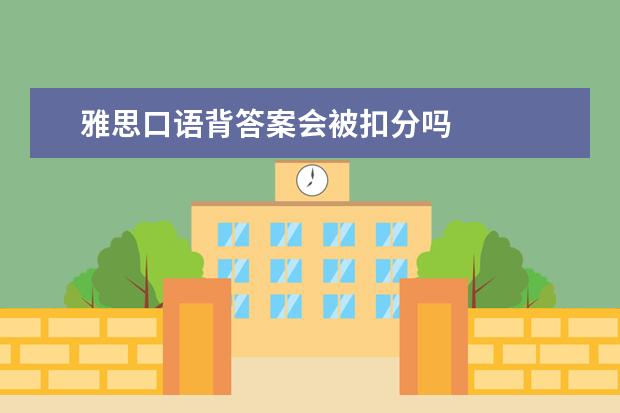 雅思口语背答案会被扣分吗
雅思口语背答案会被扣分吗
雅思口语背答案会被扣分吗会。考官经专业培训,能识别背诵痕迹(如语速突变、眼神飘忽、内容与问题微偏)。
2026年01月06日 18:32 剑4Test1雅思口语part2范文 求:剑八 Test1 雅思口语Part2 a survey 解析题目: D...
剑4Test1雅思口语part2范文 求:剑八 Test1 雅思口语Part2 a survey 解析题目: D...
雅思考试主要是通过对考生听、说、读、写四个方面英语能力的考核,综合测评考生的英语沟通运用能力,实现“
2023年07月21日 19:03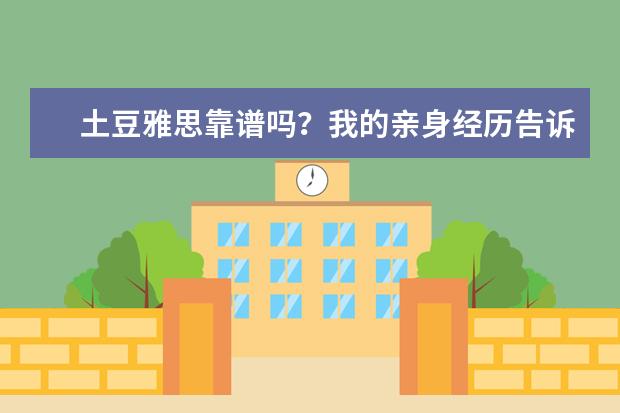 土豆雅思靠谱吗?我的亲身经历告诉你答案
土豆雅思靠谱吗?我的亲身经历告诉你答案
土豆雅思真实情况是啥?老用户的真实体验分享土豆雅思真实情况分享土豆雅思是一个专注于提供实实在在雅思备
2025年12月02日 17:43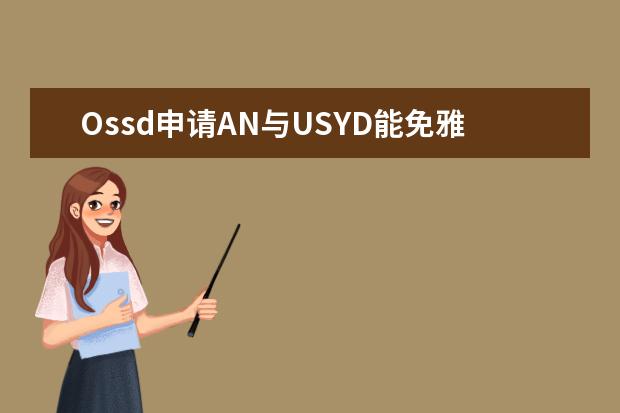 Ossd申请AN与USYD能免雅思 - 答案如何,一起看看!
Ossd申请AN与USYD能免雅思 - 答案如何,一起看看!
悉尼大学商学院申请指南悉尼大学商学院申请指南悉尼大学商学院提供多个硕士项目,涵盖不同专业方向,申请需
2026年01月24日 10:51 雅思单科可以重考费用/流程/考试形式全解析+利弊分析(重磅官宣!雅思单项重考正式上线,终于能拼分啦!)
雅思单科可以重考费用/流程/考试形式全解析+利弊分析(重磅官宣!雅思单项重考正式上线,终于能拼分啦!)
雅思单科可以重考费用/流程/考试形式全解析+利弊分析本文解析了雅思单科重考的相关信息,包括其定义、预
2025年11月22日 10:23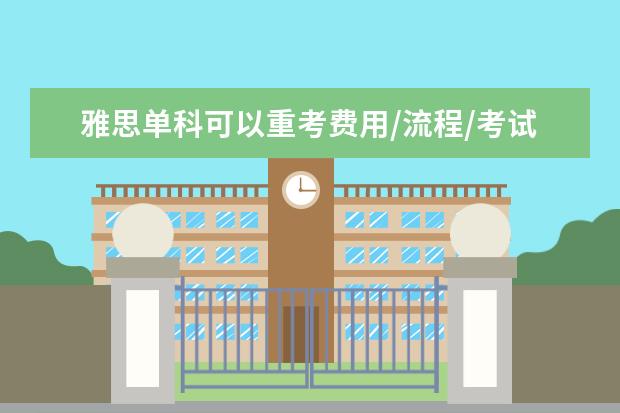 雅思单科可以重考费用/流程/考试形式全解析+利弊分析(重磅官宣|雅思单科重考!2024大陆首发,一篇读懂雅思单科重考规则)
雅思单科可以重考费用/流程/考试形式全解析+利弊分析(重磅官宣|雅思单科重考!2024大陆首发,一篇读懂雅思单科重考规则)
雅思单科可以重考费用/流程/考试形式全解析+利弊分析本文解析了雅思单科重考的相关信息,包括其定义、预
2025年11月25日 21:55 香港城市大学雅思成绩要求 香港留学,各专业雅思和GMAT成绩要求全解析
香港城市大学雅思成绩要求 香港留学,各专业雅思和GMAT成绩要求全解析
【香港留学】盘点香港学校对英语成绩的要求香港学校对英语成绩的要求香港作为许多内地学生的升学目的地,其
2026年02月02日 04:22 9月19日首都师范大学雅思口语考试安排 雅思UKVI中国考点-UKVI雅思考试特点全面分析及全国考点清单
9月19日首都师范大学雅思口语考试安排 雅思UKVI中国考点-UKVI雅思考试特点全面分析及全国考点清单
2023年9月19日首都师范大学雅思口语考试安排您好,我是专注留学考试规划和留学咨询的小钟老师。在追
2025年12月04日 02:16 4月26日太原雅思口语考试时间公布(山西太原市10月份雅思考试时间汇总)
4月26日太原雅思口语考试时间公布(山西太原市10月份雅思考试时间汇总)
2023年4月26日太原雅思口语考试时间公布您好,我是专注留学考试规划和留学咨询的小钟老师。在追寻留
2025年12月05日 11:57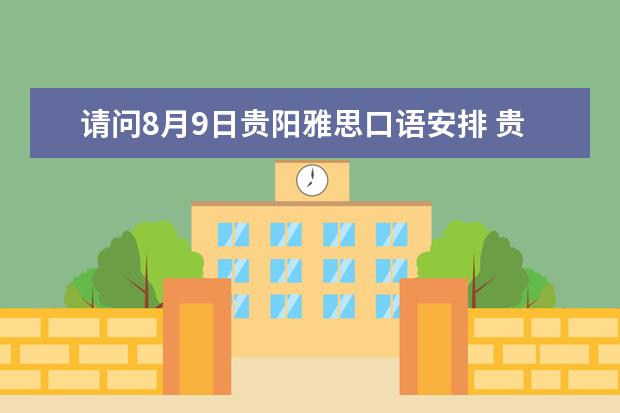 请问8月9日贵阳雅思口语安排 贵阳雅思报名日期
请问8月9日贵阳雅思口语安排 贵阳雅思报名日期
请问2023年8月9日贵阳雅思口语安排您好,我是专注留学考试规划和留学咨询的小钟老师。选择留学是人生
2025年12月06日 10:41